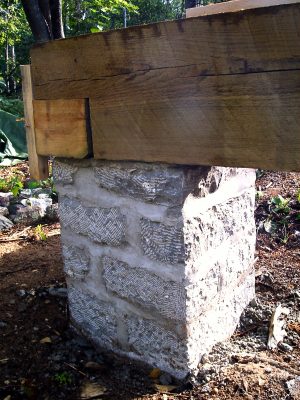Choosing Skylights
Q: Please help me make sense of the new skylight features I’m seeing on the market. Can electric shades be operated with the same remote controls that open and close the skylight itself? Which kind is easier to install, solar skylights or wired ones?
A: When it comes to skylights, there’s a lot to think about these days. That’s because valuable innovations are appearing that make skylights more useful and easier to install. Solar skylights are one example.
 Solar skylights and blinds open and close electrically, but you don’t need to run wires to them. A small solar cell keeps an internal battery charged, allowing the until to be opened and closed with a hand-held remote or on a preset schedule. VELUX pioneered the solar skylight option, and they’re currently the only manufacturer offering this feature. Both the window and the blind can be configured to operate from the same remote, and the window closes automatically after the first few drops of rain. Learn more about skylights and watch me install a solar model in this video.
Solar skylights and blinds open and close electrically, but you don’t need to run wires to them. A small solar cell keeps an internal battery charged, allowing the until to be opened and closed with a hand-held remote or on a preset schedule. VELUX pioneered the solar skylight option, and they’re currently the only manufacturer offering this feature. Both the window and the blind can be configured to operate from the same remote, and the window closes automatically after the first few drops of rain. Learn more about skylights and watch me install a solar model in this video.
Heat Pump Noise
Q: Should our heat pump be making a whining sound? It worked quietly last winter, but after a repair this past fall it sounds different. A technician replaced the fan motor, but the noise continues, though more quietly now. We’re now told the noise is normal when it’s cold outside. Should we push harder on this issue?
A: Yes, definitely, you should pursue a proper fix because the logic of the technician doesn’t stand up to reason. If the cause of the noise was an inevitable part of the design of the system, it would have made the noise right from the beginning during cold weather. The fact that your system was quiet the first year proves that it can’t be caused by something inherent in the unit. Also, heat pumps can be costly to repair, so you should aim for a more thorough fix while you’re still under warranty.
Basement Waterproofing
Q: Is it worth the trouble to coat my basement walls with a waterproof paint before putting up insulation and drywall? The basement has always been dry, but this is the last time I’ll get the chance to keep water out.
A: Yes, coating concrete basement walls before finished walls go up is a good idea on two counts. First, it could stop a future leak from soaking through your walls, and second, a good waterproofing paint will keep airborne moisture from migrating into the wall cavities and causing mold and mildew. The trick is choosing a waterproof paint that’s actually waterproof. Many aren’t that good, but a product called Drylok certainly is. Independent testing shows that it’s very effective at keeping liquid and vapour water from soaking through masonry.
Building a Cabin
Q: How should I insulate the walls of a small cabin I’ll be building this summer? I’m thinking of spray foam. What kind of foundation do you recommend for a project like this?
A: You could fill the wall frame with foam, but that’s pretty expensive. Filling part of the frame first with foam followed by stone wool batts is a good alternative, but strictly speaking the foam needs to be 3″ thick to act as it’s own vapour barrier.
 As for a foundation, I’m always a big fan of keeping wood well above the soil. One simple option are 12” diameter concrete piers poured on site. A more traditional and beautiful approach involves piers made of stone, and that makes sense where stone is available for the taking. A cabin I built uses 18″ x 18″ stone piers that are typically 12″ to 18″ above grade. This keeps the wood of the floor frame high and dry, with no chance of excessive moisture building up underneath the cabin.
As for a foundation, I’m always a big fan of keeping wood well above the soil. One simple option are 12” diameter concrete piers poured on site. A more traditional and beautiful approach involves piers made of stone, and that makes sense where stone is available for the taking. A cabin I built uses 18″ x 18″ stone piers that are typically 12″ to 18″ above grade. This keeps the wood of the floor frame high and dry, with no chance of excessive moisture building up underneath the cabin.


